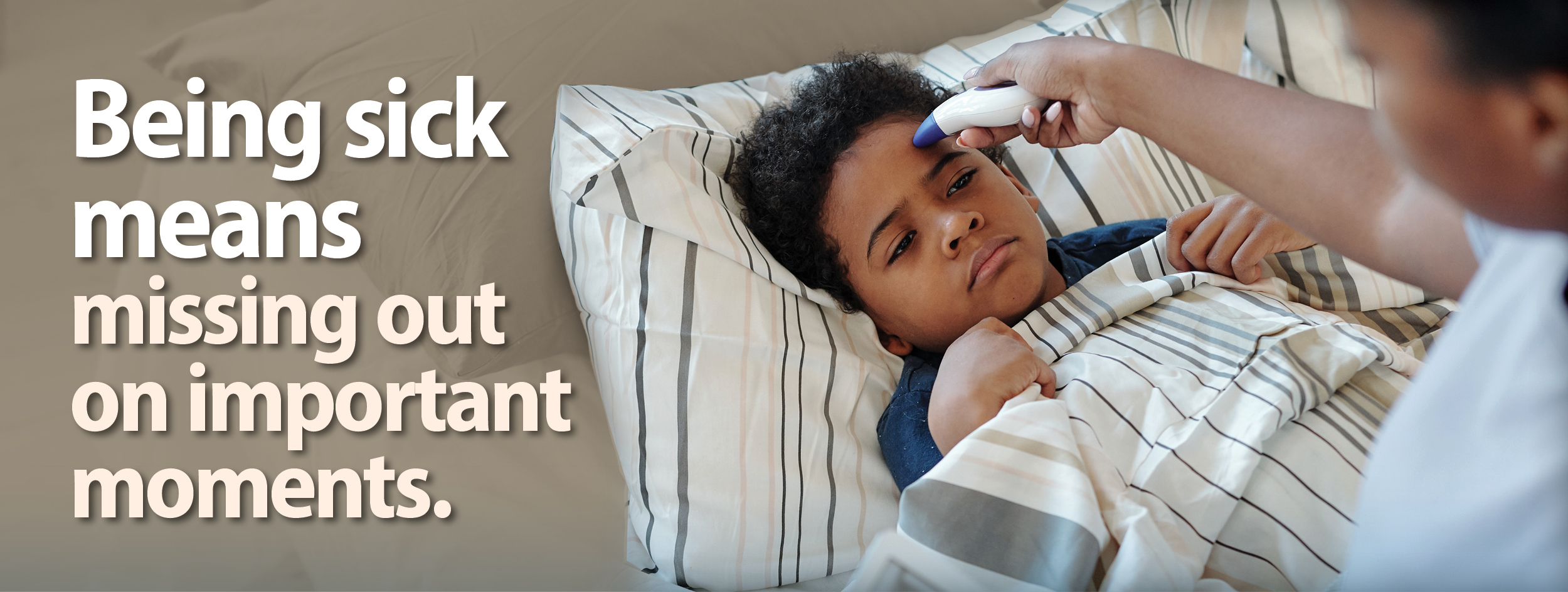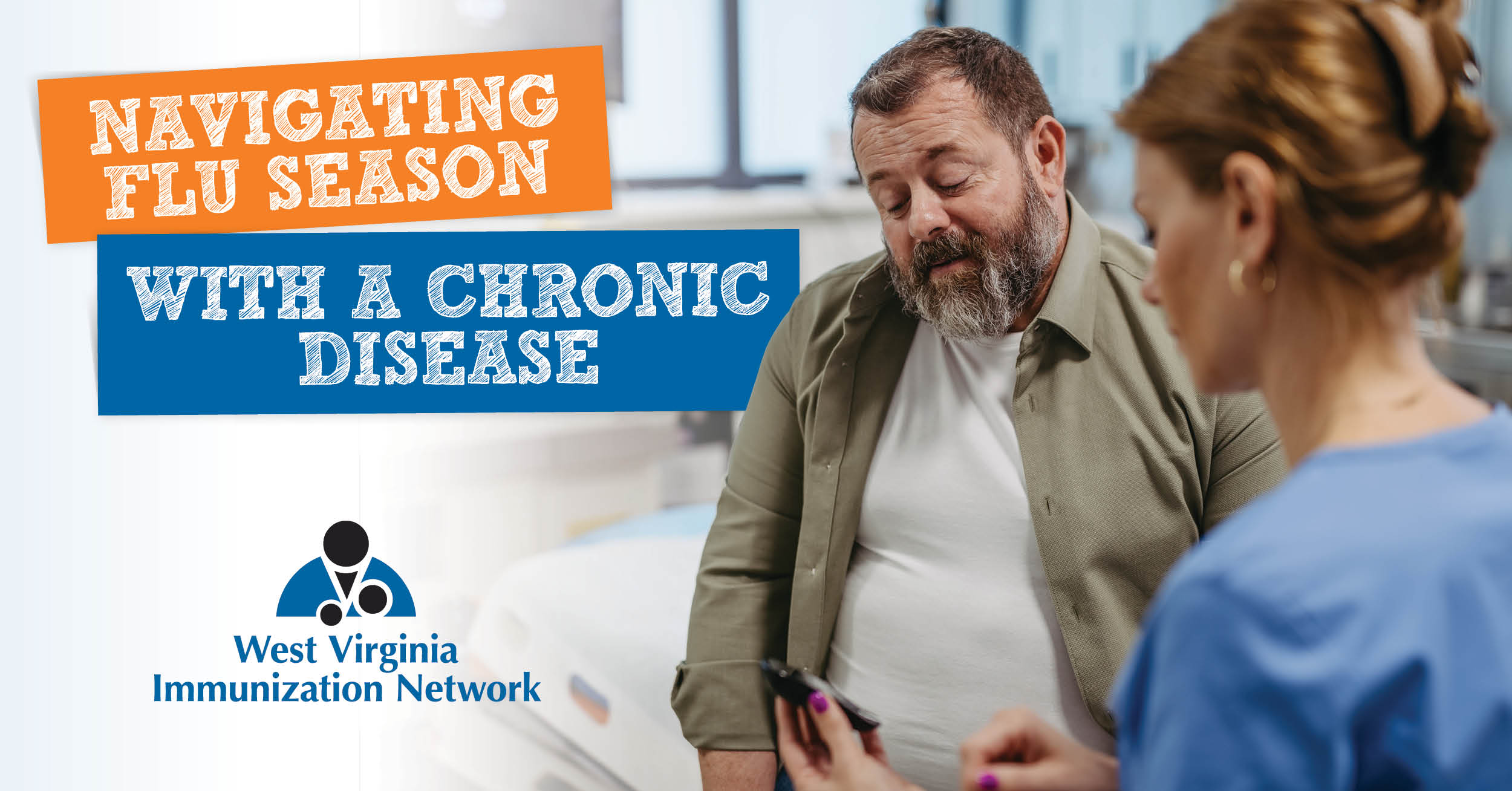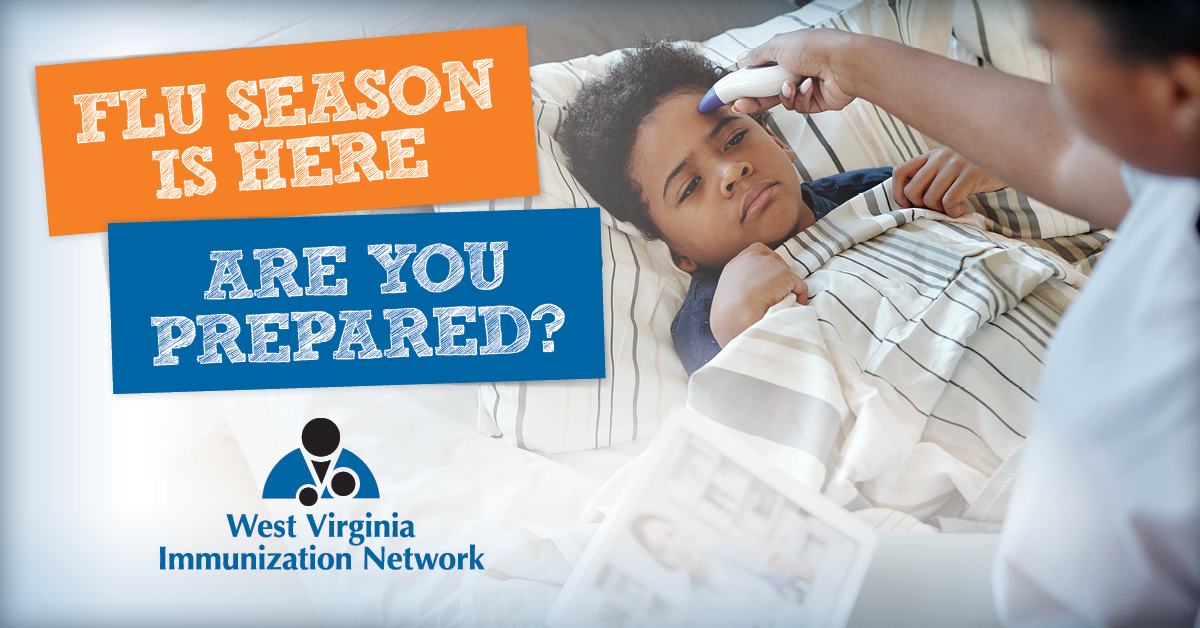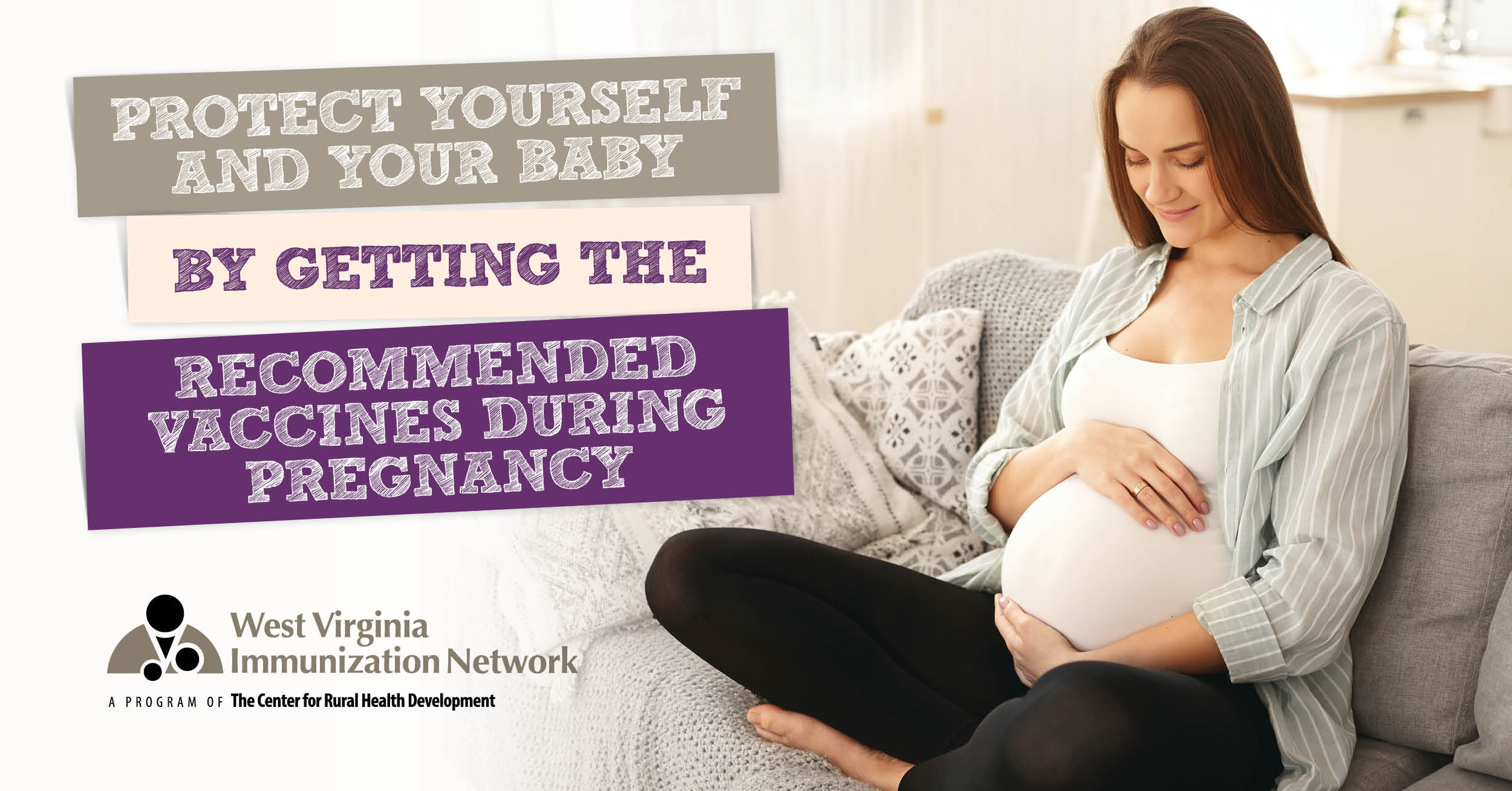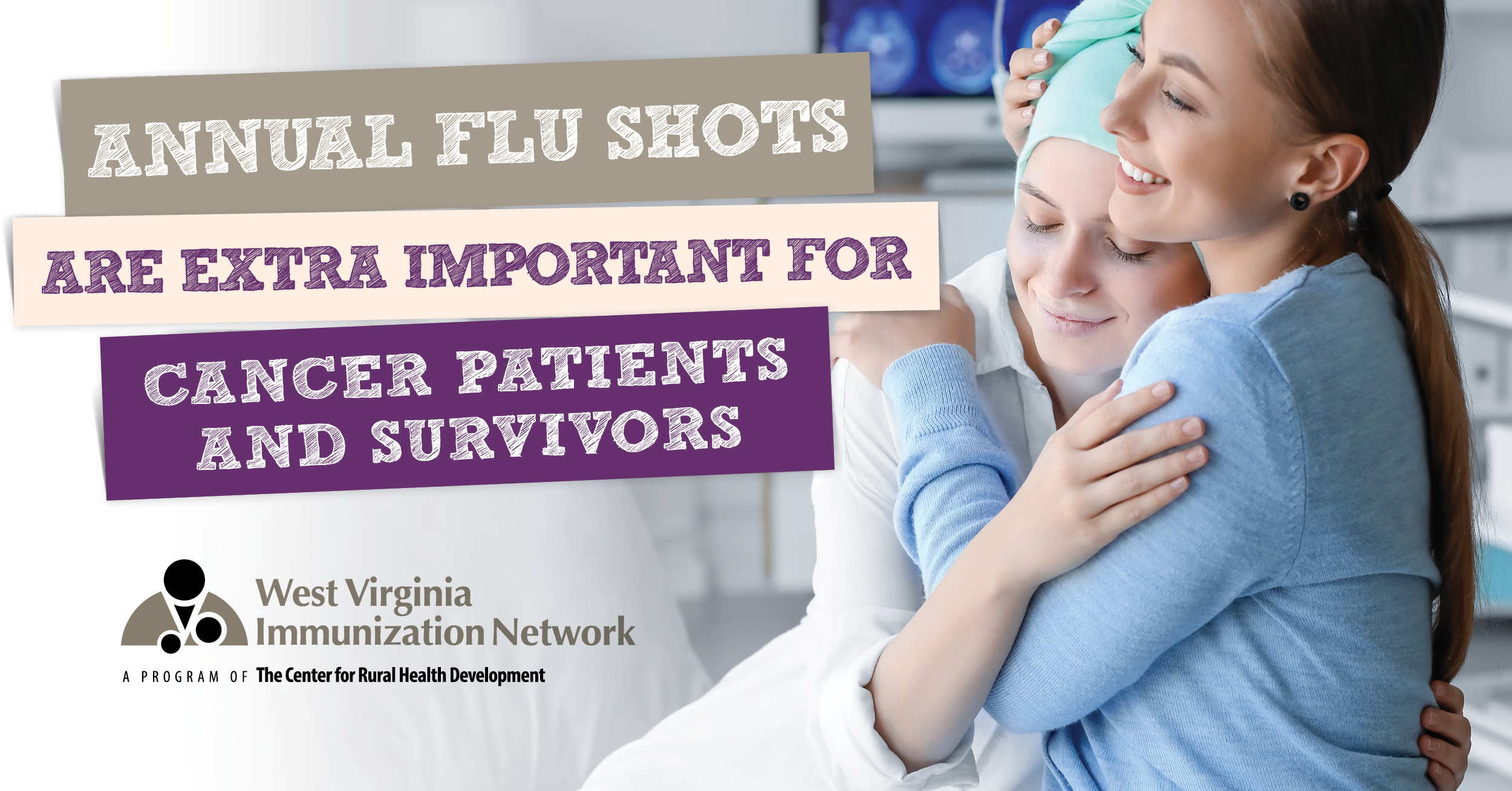Protect Yourself and Your Loved Ones This Respiratory Virus Season.
Immunizations are a key prevention strategy to lower your risk of severe respiratory disease.
For most people this means getting an annual flu vaccine as well as an updated COVID-19 shot. Everyone ages 75 and older are also recommended to receive an RSV vaccine. CDC also recommends adults ages 60-74 who are at increased risk of severe RSV disease get an RSV vaccine. To prevent severe RSV disease in infants, CDC recommends either the pregnant mother gets an RSV vaccine, or the infant gets an immunization with an RSV monoclonal antibody. Most infants will not need both.
Flu Immunization
Influenza, more commonly known as flu, is a contagious respiratory illness caused by a virus. It can infect the nose, throat or lungs and while flu viruses can be detected at any point in the year, they circulate most heavily during the fall and winter. “Flu season” usually begins in October with peak activity from December to February, although this can vary from season to season.
The best protection against flu and its complications is to get an annual flu shot. The Centers for Disease Control & Prevention recommends that everyone 6 months and older get a flu vaccine every season. Flu vaccination can reduce illness, visits to doctor’s offices, and missed school or work. Most importantly, vaccination can make symptoms less severe and reduce flu-related hospitalizations or death.
Ideally, most individuals should receive their annual flu shot during September or October but as long as flu viruses are circulating in your community, vaccination is appropriate. For the 2024-2025 flu season, several different vaccine options available and depending on your age, you might be preferentially recommended to receive one vaccine over another.
The best protection against flu and its complications is to get an annual flu shot. All individuals 6 months and older should get a flu shot every year with rare exceptions. Vaccination is especially important for people who are at higher risk of serious complications from flu infection.
- There are several flu shots approved for use in people as young as 6 months old and older.
- Two are approved only for adults 65 years and older.
- Flu shots also are recommended for pregnant people and people with certain chronic health conditions.
- The nasal spray flu vaccine is approved for use in people 2 years through 49 years of age. People who are pregnant and people with certain medical conditions should not receive the nasal spray flu vaccine.
- For people younger than 65 years, CDC does not recommend any one flu vaccine over another.
- For adults 65 years and older, there are three flu vaccines that are preferentially recommended : Fluzone High-Dose Quadrivalent inactivated flu vaccine, Flublok Quadrivalent recombinant flu vaccine and Fluad Quadrivalent adjuvanted inactivated flu vaccine.
For more information about annual flu shots, talk with a healthcare provider or visit the Centers for Disease Control & Prevention’s Key Facts About Season Flu Vaccine webpage.
COVID-19 Immunization
The COVID-19 is a respiratory virus that most often causes symptoms like the cold, flu or pneumonia. It is highly contagious because the virus is always changing and protection from COVID-19 immunization can decrease over time. Receiving an updated 2024-2025 COVID-19 vaccine is recommended to prevent severe infection or hospitilization from COVID-19 infection. Staying up to date on COVID-19 shots also reduces your risk of developing Long COVID.
COVID-19 immunization is recommended for everyone ages 6 months and older in the United States for the prevention of severe COVID-19 infection. Staying up to date is especially important for people at highest risk of severe COVID-19, including people ages 65 years and older; those with underlying medical conditions, people living in long-term care facilities, and pregnant people to protect themselves and their infants.
There are different types of COVID-19 vaccines but they all work in the same way. They teach our bodies to recognize and be able to fight off the COVID-19 virus if we were to become infected. The two types of vaccines currently approved for use are mRNA (Pfizer-BioNTech or Moderna) or the protein subunit vaccine (Novavax).
Recommendations for people who are not moderately or severely immunocompromised
Initial vaccination
- Ages 6 months–4 years
- 2 doses of 2024–2025 Moderna or 3 doses of 2024–2025 Pfizer-BioNTech
- Ages 5 years and older
- 1 dose of 2024–2025 Moderna or 1 dose of 2024–2025 Pfizer-BioNTech
Received previous doses of a COVID-19 vaccine
- Ages 6 months–4 years
- 1 or 2 doses of 2024–2025 mRNA vaccine from the same manufacturer as administered for initial vaccination, depending on the vaccine and the number of prior doses
- Ages 5 years and older
- 1 dose of 2024–2025 Moderna or 1 dose of 2024–2025 Pfizer-BioNTech
Additional dose: An additional dose of 2024–2025 COVID-19 vaccine for people ages 65 years and older who are not moderately or severely immunocompromised is NOT currently recommended.
Recommendations for people who are moderately or severely immunocompromised
Initial vaccination
- Ages 6 months and older
- 3 doses of 2024–2025 Moderna or 3 doses of 2024–2025 Pfizer-BioNTech
Received previous doses of a COVID-19 vaccine
- Recommended mRNA vaccine and number of 2024–2025 doses are based on age and vaccination history
Additional doses: People who are moderately or severely immunocompromised ages 6 months and older may receive 1 or more age-appropriate additional doses of a 2024–2025 mRNA COVID-19 vaccine.
Additional Resources:
- Benefits of getting vaccinated
- Vaccines for immunocompromised individuals
- COVID-19 Vaccination for People who are Pregnant or Breastfeeding
- COVID-19 Vaccination for Long Term Care Residents
Talk with a healthcare provider if you have questions or to see if you or your family are due for a COVID-19 shot. You can also visit the CDC’s webpage to learn more about staying up to date with COVID-19 immunizations.
RSV Immunization
Respiratory syncytial virus, also known as RSV, is a common respiratory virus that usually causes mild, cold-like symptoms. Most people recover in about a week or so, but RSV can be serious. Infants and older adults are more likely to develop severe RSV and need hospitalization. Vaccines are available to protect older adults from severe RSV. Vaccines for pregnant people or monoclonal antibody products are available to protect infants and young children from severe RSV.
CDC RSV Immunization Recommendations
Adults ages 60 years and older
- CDC recommends an RSV vaccine for everyone ages 75 and older and adults ages 60-74 at increased risk of severe RSV.
- Adults 60-74 who are at increased risk include those with chronic heart or lung disease, certain other chronic medical conditions, and those who are residents of nursing homes or other long-term care facilities.
- RSV vaccine is not currently an annual vaccine, meaning older adults do not need to get a dose every RSV season. If you have already gotten an RSV vaccine, you do not need to get another one at this time.
Vaccination for pregnant people
- 1 dose of maternal RSV vaccine during weeks 32 through 36 of pregnancy, administered September through January.
Immunization for infants and young children
- 1 dose of nirsevimab is recommended for infants younger than 8 months of age who were born shortly before or are entering their first RSV season (typically fall through spring)
- 1 dose of nirsevimab for infants and children aged 8–19 months who are at increased risk for severe RSV disease and entering their second RSV season.
If you have any questions about RSV or the products above, talk to your healthcare provider.
Get protected! It is one of the best things you can do this fall and winter to stay healthy and avoid missing out on special occasions with family and friends. For specific questions or guidance, be sure to talk with your healthcare provider.
Click below to find a vaccination location near you!
Respiratory Illness Articles & Insights
Navigating Flu Season with a Chronic Disease
Living with a chronic disease has its daily challenges and can certainly take a toll on one’s physical and mental wellbeing. In the Mountain State, asthma, heart disease, Chronic Obstructive Pulmonary Disease (COPD), diabetes, extreme obesity, and cancer are the most...
Flu Season is Here!
The cooling temperatures indicate that fall is here in the Mountain State. However, while autumn is filled with festivities and fun, it’s also a reminder that flu season is here. Although many people with influenza recover without further medical issues, the flu can...
Protecting Yourself and Your Baby by Getting the Recommended Vaccines During Pregnancy
During pregnancy it’s normal to have questions about the best steps to ensure a healthy pregnancy. With respiratory season in full force, we thought we’d address some commonly asked questions to make sure you are prepared to protect yourself and your baby from...
Annual Flu Shots Are Extra Important for Cancer Patients and Survivors
Flu season is here, and having cancer, or being a cancer survivor can increase your risk for flu complications and hospitalization. Protecting yourself from the flu is recommended for cancer patients and cancer survivors because the flu can be serious and sometimes...

